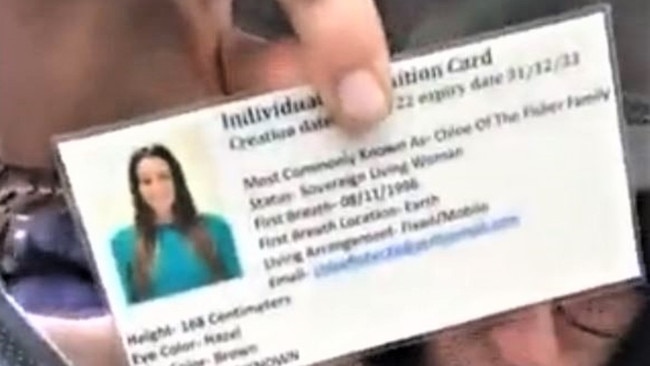Judge says sovereign citizens are congesting Aussie courts
So-called sovereign citizens are clogging up Australian courts – and even hopelessly suing judges for millions.

So-called sovereign citizens, who erroneously believe they are not subject to Australian law, are putting a strain on the country’s legal system, according to New South Wales Magistrate Mark Douglas.
The self-represented litigants are making “pseudo-legal” arguments, challenging government, tax, and legal authority and in the last six months, judicial complaints have increased by 20 to 30 per cent, the ABC reports.
The trend has led to magistrates struggling with their workload, with cases – many being filed by sovereign citizens – taking three to four times as long as they usually do.
The pseudo-legal arguments, often used to dispute minor charges, involve a challenge to the court’s jurisdiction, which takes longer to resolve.

Magistrate Douglas told the ABC RN’s The Law Report that the sovereign citizen arguments are often based on quotes from the US Constitution, the Bible, the Magna Carta, and other historical documents.
Even criminal cases are filed using such documents, which further complicates matters.
“You’ll pick up a file, and it might be a parking fine, and there might be 300 pages on it in an envelope. And you start to suspect that it’s going to be pseudo-legal arguments,” Magistrate Douglas said.

And in other instances, individuals identifying as sovereign citizens have threatened to sue magistrates.
“I’m presently being sued by a sovereign citizen (for) $10 million. Mind you, there’s no court stamps or seals on any of the documents,” he told the program.
“Apparently, they have their own legal framework, and they’re trying to sue within that own legal framework. They have their own sheriffs, etc.”
In January, former NSW magistrate David Heilpern told news.com.au that not one sovereign citizen case held up in court during his time in the Australian court system.

As the Dean of Law at Southern Cross University, Professor Heilpern says that no sovereign citizen has ever successfully proved that they are immune from the rule of law in an Australian court.
He views the trend as people being “sucked into what is so blatantly and obviously illogical and non-legal”.
Professor Heilpern says that the time-consuming arguments are not often looked upon kindly by judges, with some cases leading to harsher sentencing.
He also shared with news.com.au that several websites are taking advantage of the trend, charging fees for “defence kits” that offer bogus advice on avoiding fines or day court.

One such website charges $87 for a booklet that claims to be able to get people out of speeding tickets, while another site claims that fines for speeding, parking, red-light cameras, and more are “completely illegal”.
They boast testimonials from happy, anonymous customers claiming to have argued their way out of all manner of fines and charges using the merchants’ methods.
“It’s not them who are going to jail. It’s not them who are getting their windows smashed,” Professor Heilpern said.
“I’ve looked into every single one of those cases that they claim have resulted in victory.
“The lists of so-called successes are all bullsh*t.”
News.com.au approached the ACCC, Australia’s consumer watchdog, about the websites.
An ACCC spokesperson told us: “Sorry, but we do not enforce the accuracy of the internet.”
Magistrate Douglas told the ABC the situation was a growing burden on the Australian courts, with an overwhelming majority of magistrates stating that the pseudo-legal arguments are blowing out their lists.
And despite their efforts to challenge the jurisdiction, the so-called sovereign citizens have yet to succeed in Australian courts.



